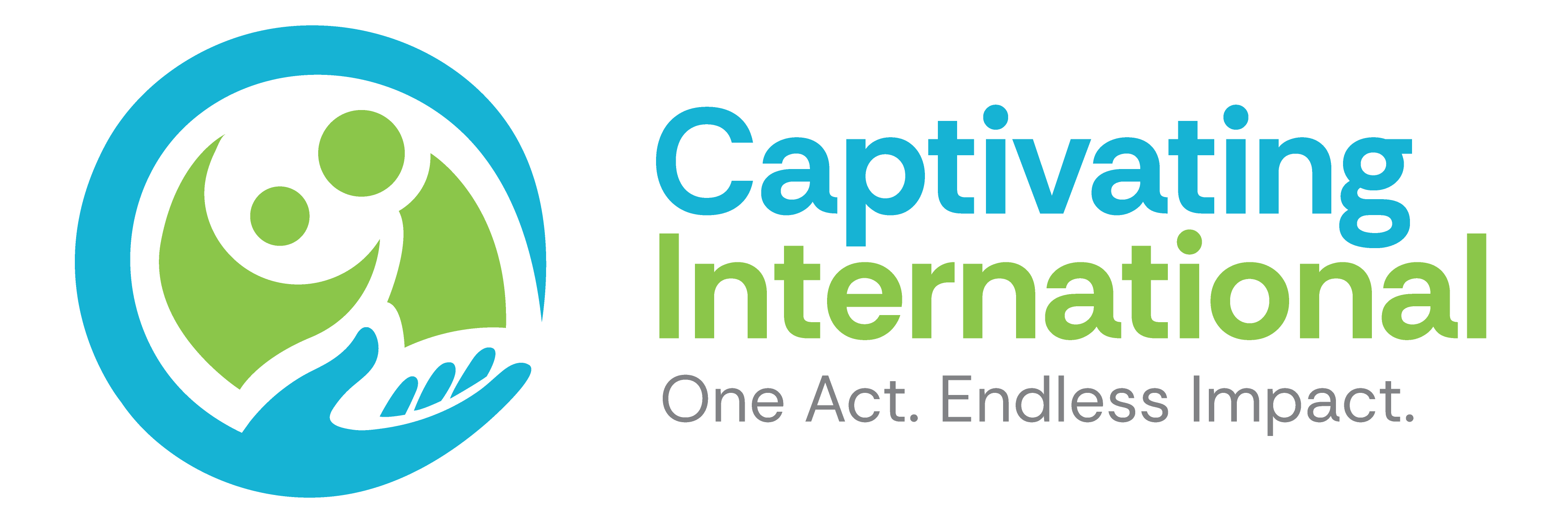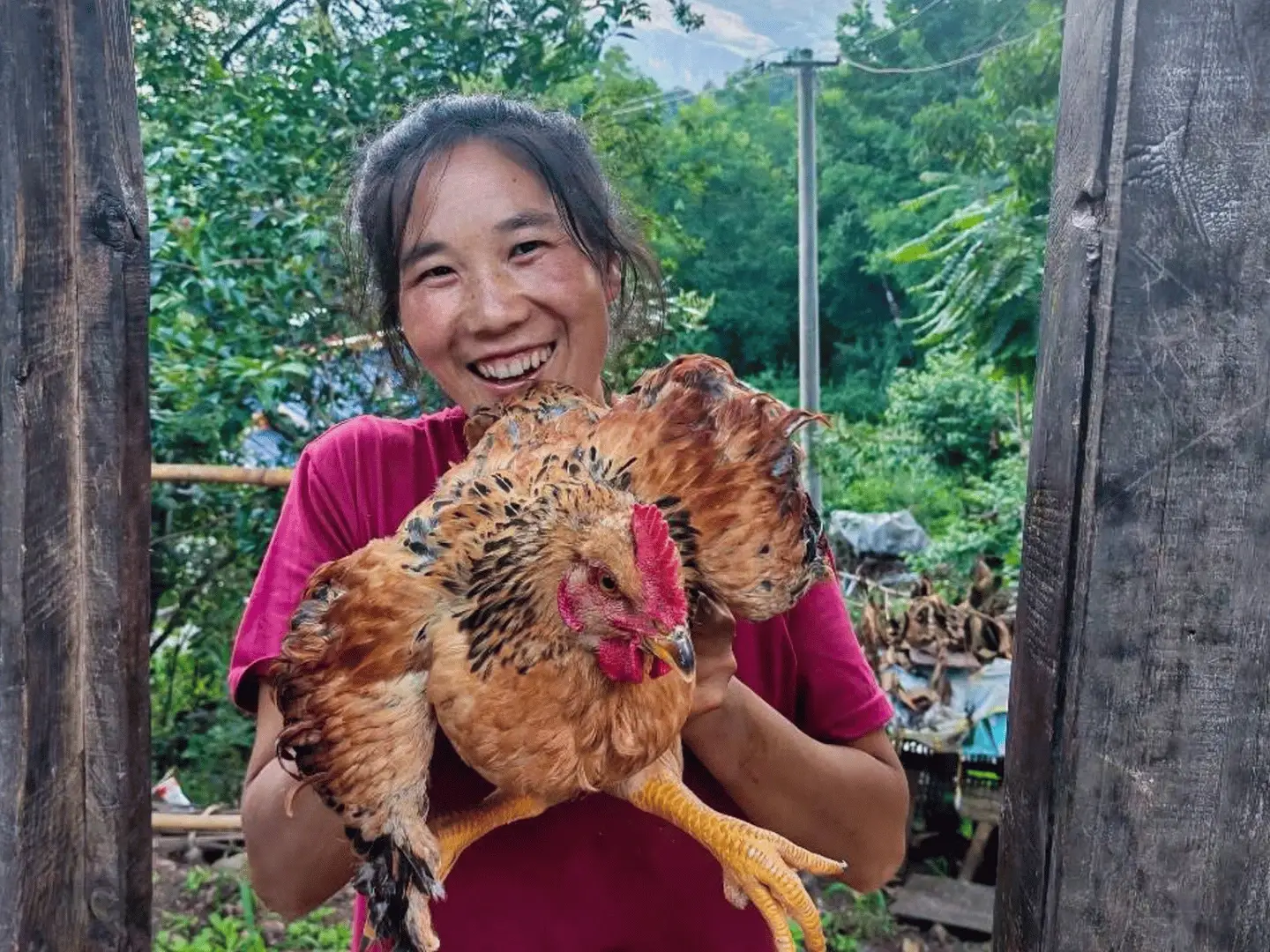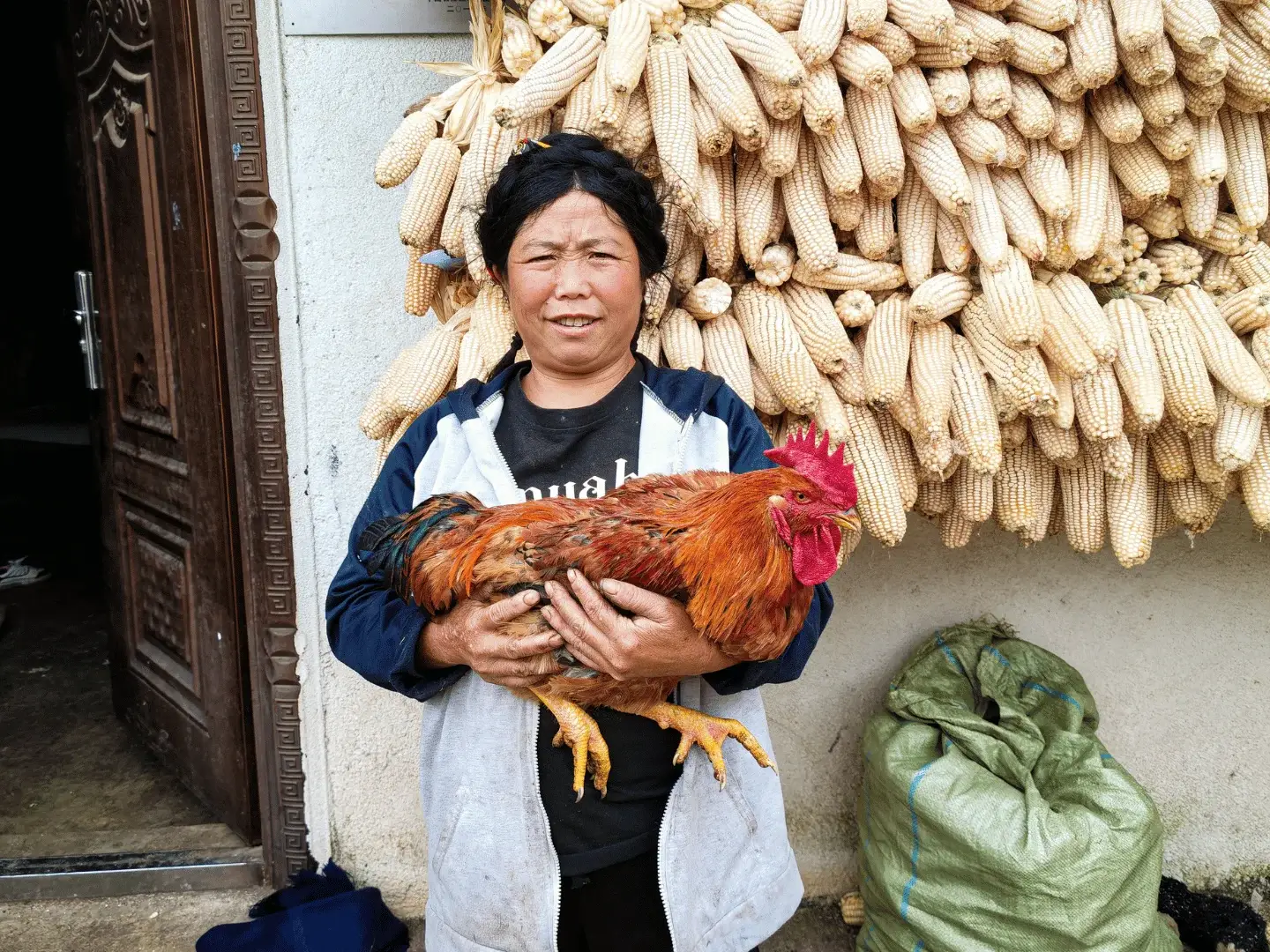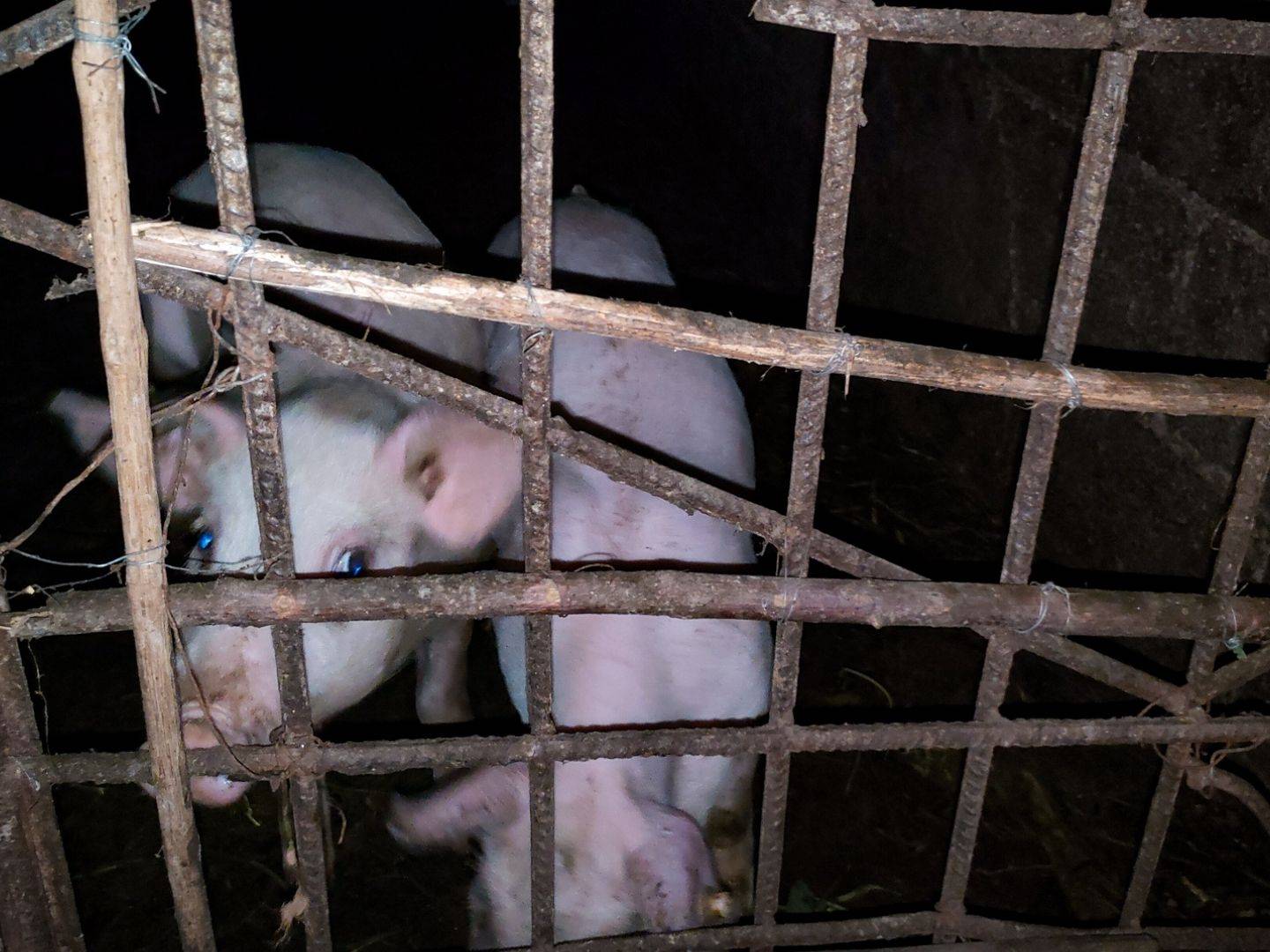Our Chicken Farming Program (CF) aims to help families increase their financial income to support their children’s education and improve their quality of life. Our goal is to help families earn an additional CNY 3,000 – 6,000 (USD 420 – 840) annually through raising chickens.
We commit to reaching out to mothers that have received our help by conducting regular home visits. On our way to Jike Quge’s home, we were led by a few local primary school students to act as our guide and translators. We walked through a mountain path for a kilometer before reaching her home.
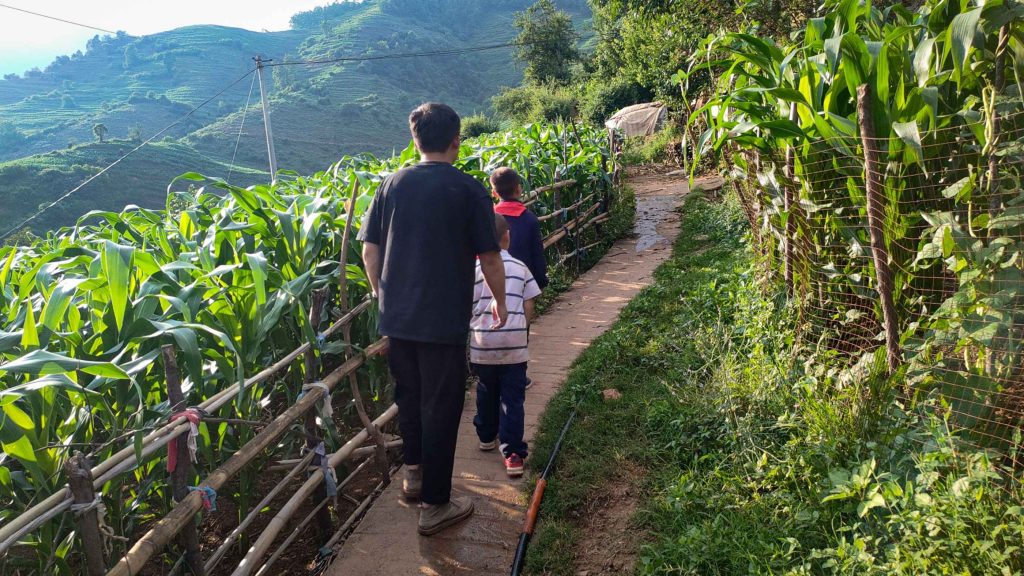
It was a pretty humble home on the outside. When we got there, the gate was slightly ajar and a child met us at the entrance. The child called out to their mother, and Jike Quge came out to greet us warmly and invited us inside. She disappeared into the kitchen to prepare us a large bowl filled with hot steamed buns. As she prepared, we looked around her home as she tried her best to welcome us. It was tidy and organized, with a few pieces of old furniture. What caught our eye was the several bags of chicken feed on the corner.
After placing the steamed buns on the table, she hurried outside and said something in Yi language, which of course, we did not initially understand. We asked one of the students,
“What did she say?”
“She said she’s going to catch a chicken to make lunch for you.”
Alarmed that she was preoccupying herself too much, we hurriedly asked the children to tell her that we are not going to stay a while, and will just be checking up on her regarding the program—and they did as told. When we asked her to sit down and not mind us too much, she hesitated at first but eventually gave in and relaxed.
She begins her story by telling us about her family’s current situation. Her husband is disabled and couldn’t work, so their main income merely comes from the government’s low-income household subsidy. She believes in the freeing power of education and makes an effort to still send her children to school. To support them, she had to borrow a total of CNY 30,000 from relatives and friends.
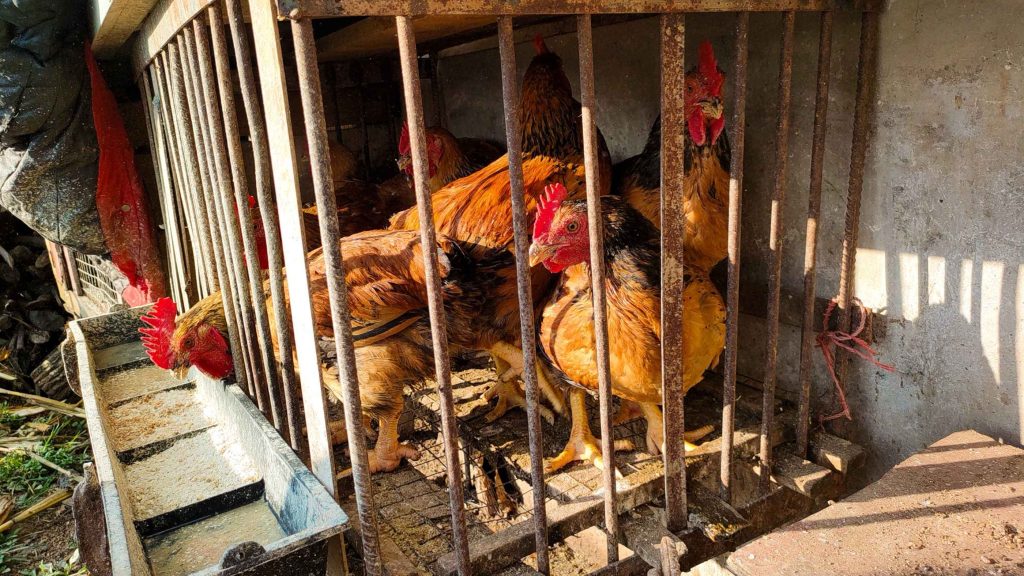
When we asked her about the chicks that we gave her from the project, she repeatedly said “Kasasa!” Which in Yi language means “Thank you.” She looked sincerely at us and said,
“I’m not highly educated and don’t know what else to say—just thank you. If it weren’t for the chicks you gave us, I would’ve had to spend money to buy them. Right now, we have no stable source of income, and several children are still in school. We can barely cover basic living expenses, and any extra cost is a burden.”
We asked her another question, “Do you think the training helped you raise these chickens?”
Her face lit up.
“I hope there will be more of these trainings in the future. For people like us who’ve farmed for generations, this has given me real hope. Before, I raised chickens based only on experience, just letting them roam. But now I’ve learned that raising chicks requires proper care, management, disease prevention, and feeding techniques.”
Because of these techniques, the survival rate of the chicks noticeably improved. Before, only 4 or 5 out of 10 would survive. But because of the training, 8-9 make it! Not only does the survivability improve, but the quality of the chicks. When Jike first received them, they only weighed 1 jin (0.5 kg), and now, they weigh up to 5 jin (2.5 kg). With this healthy weight, they are easily salable for income. The said profit will then be used to buy necessary school supplies and some clothes for her children.
We told Jike that she is doing a good job. Despite her limited education, she is doing her best with the opportunities that she has been given, just like this Chicken Farming program. Her eyes were well-lit throughout the conversation. Life is hard, but her consistent habit of showing gratitude leaves a lasting impression on us.
As we said our goodbyes, Jike Quge firmly grasped our hands and said her last “Kasasa.” That simple act alone lingered in our hearts as we went back to where we came from—far, far away from Jike Quge’s humble, yet warm and loving home.
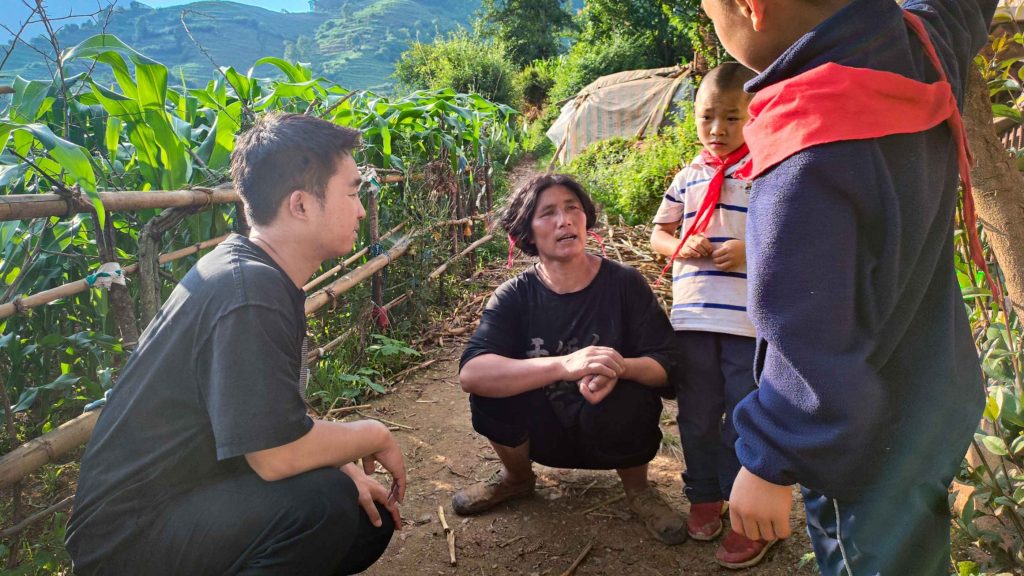
Our Partners

Be a Part of the Solution
By supporting the Chicken Farming Program, you help provide essential training, resources, and a sustainable source of income for families in need.
Empower them today.
